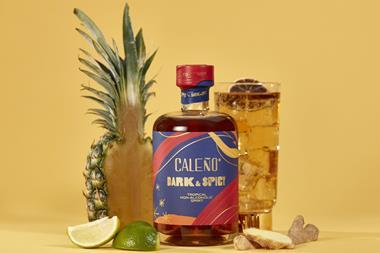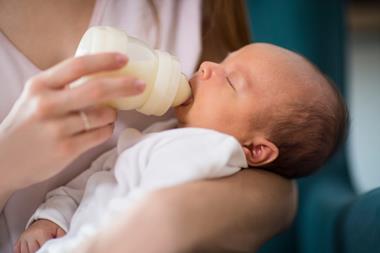
Leading nutrition experts are calling for B Lab to introduce nutritional criteria into its B Corp accreditation process.
Non-profit Access to Nutrition Initiative, public health nutritionist Ali Morpeth and nutritional epidemiologist Diane Threapleton have warned a B Corp certification can be a “health halo” for brands, leading shoppers to believe food and drink products are healthier than they are.
This was especially prevalent in babyfood, where analysis of over 200 B Corp certified products conducted by Threapleton identified “worrying patterns” of foods being marketed for babies aged four months and up – contrary to UK NHS guidelines, which recommend weaning at six months.
All three B Corp-accredited babyfood manufacturers in the UK – Danone, Ella’s Kitchen and Organix – sold foods with high levels of added free sugars (including concentrated fruit juice or malted barley extract), energy-dense sweet snacks (including fruit gums and chews that are classed as confectionery according to the World Health Organization’s guidelines), and high levels of sugar, particularly in fruit-based purées and snacks, she said.
“Moreover, packaging claims of ‘no added sugars’ or ‘naturally occurring sugars’ are misleading consumers about the true sugar levels found in B Corp products,” Threapleton added.
Threapleton analysed product data from the websites of all three manufacturers [September-October 2023] and found that three of Danone brand Aptamil’s nine dry cereals for babies were marketed as suitable from four months up.
A scrape of Ella’s Kitchen’s website found 61% (27) meals and 42% (29) snacks had more contained more than the recommended 15% energy from sugar in WHO’s nutrient promotion and profile model for infants and young children six-to-36 months.
Forty-five per cent (23) of Organix snacks had more than 15% of calories from sugar, according to the analysis. Furthermore, 18 Organix products had portion sizes above WHO’s recommended maximum of 50 calories per serve.
“Selling sugar-laden products for four-month-old babies is not conducive with being a responsible company,” said Threapleton.
“Profits are clearly being placed ahead of the best interests of young and vulnerable babies.”
Morpeth said: “B Corp states that companies applying for accreditation must measure impact on workers, community, the environment, and its customers.
“However, we can clearly see from this new data that many infant foods accredited by B Corp do not meet basic nutritional composition and marketing criteria set out in WHO’s nutrient and promotion profile model.”
ATNI communications lead Philip Eisenhart added: “While B Lab has criteria for B Corp certification specific to companies that sell breast milk substitutes (baby formula), ATNI urges B Lab to develop additional criteria for companies selling commercial complementary foods to ensure infant and young children’s nutrition is protected throughout their first years of life.
“We ask B Lab to use WHO guidance to set criteria for B Corp certification of babyfood companies to align with globally recognised public health standards and to consider ATNI’s research in monitoring companies’ compliance and progress in adhering with these standards.”
Tom Ebbutt, B Lab UK’s director of impact said: “The B Corp standards co-exist alongside industry-specific guidelines and complementary certifications and we encourage B Corps to incorporate these into their impact improvement journey.
“We are currently in the process of evolving the standards for B Corp certification and will be gathering feedback on the next draft in the new year.”
A Danone spokesman said: “Every baby is different and many begin with solid foods from four months onwards, as is recognised by professional bodies representing dietetic professionals and paediatric gastroenterologists.
“Danone UK supports parents all along their baby’s feeding journey – including families who are ready to begin weaning from four months – by offering baby cereals.”
An Ella’s Kitchen spokesman said the brand’s products were “fully compliant with UK and EU law on the age of weaning, which states babyfood products can be marketed from age of four months”.
A spokeswoman for Organix said it complied “with all applicable regulations”.
Finally, a spokesman for the British Specialist Nutrition Association, which represents all three companies, said members who were B Corp certified “actively encourage actions which help parents make positive health choices when it comes to food for little ones”.
It comes after research by Action on Sugar, published in November, found that babyfood brands were adding “worrying levels of sugars” to breakfast foods intended for infants and toddlers.



















No comments yet